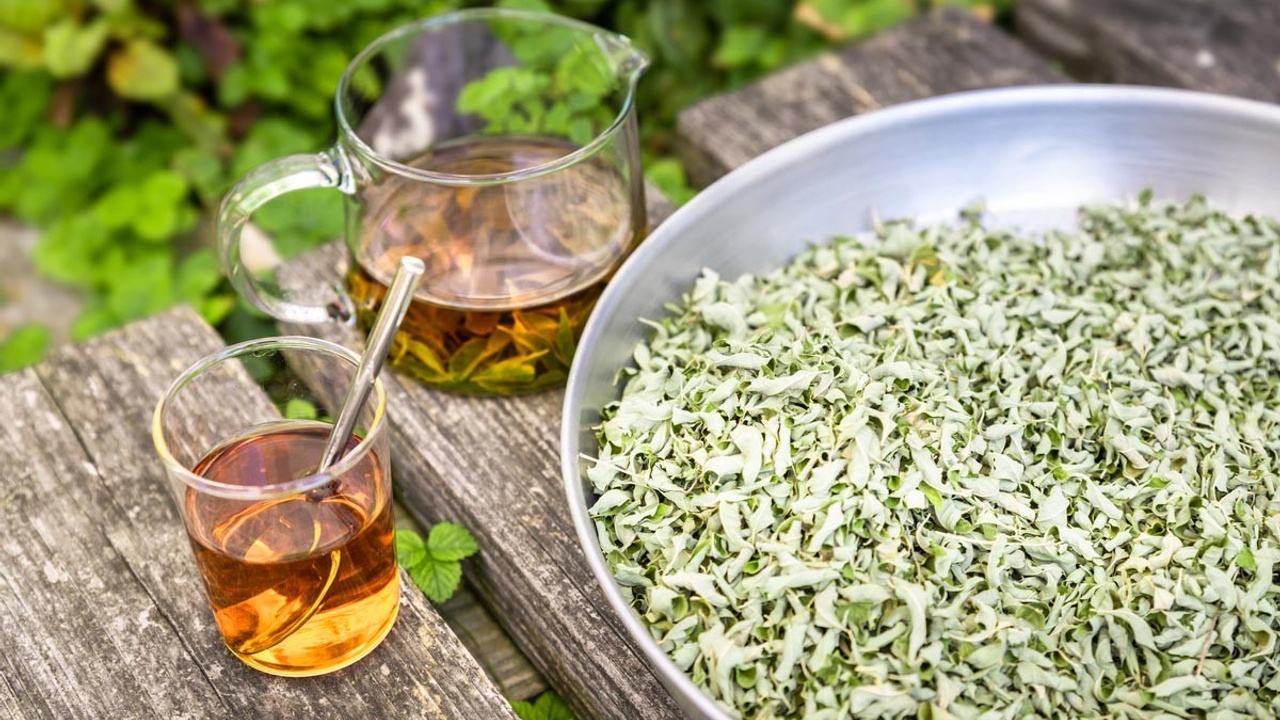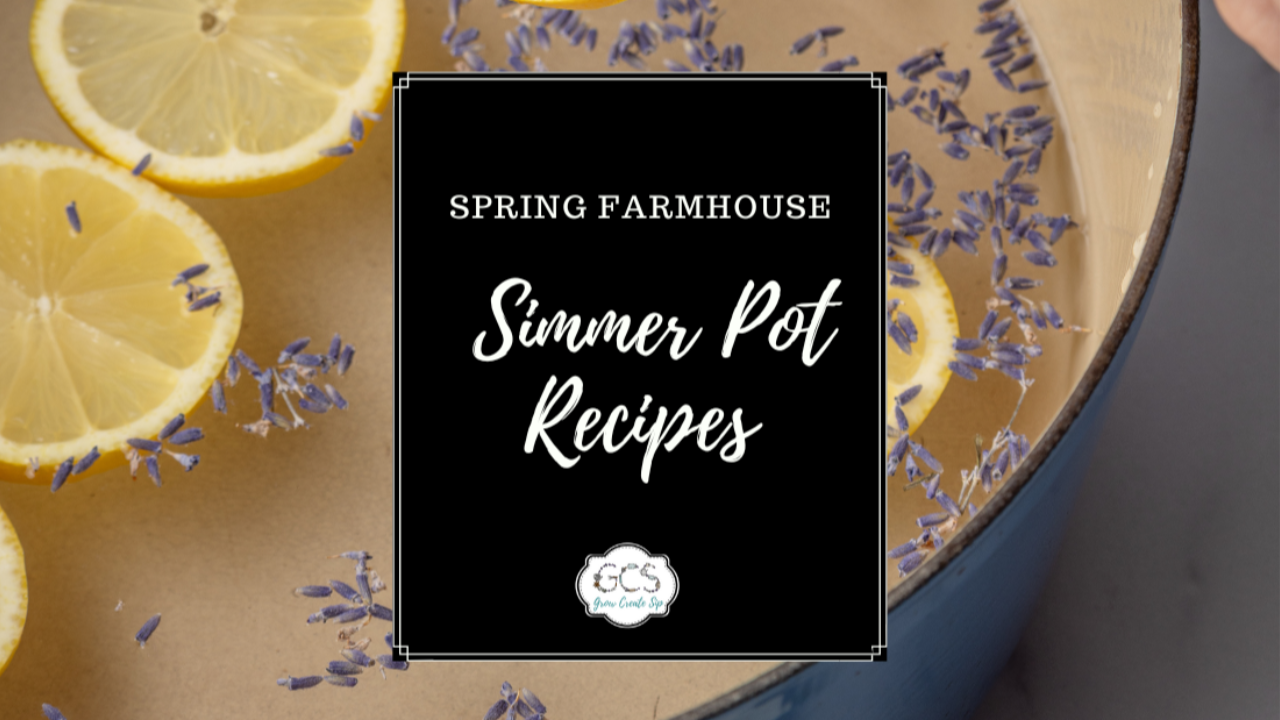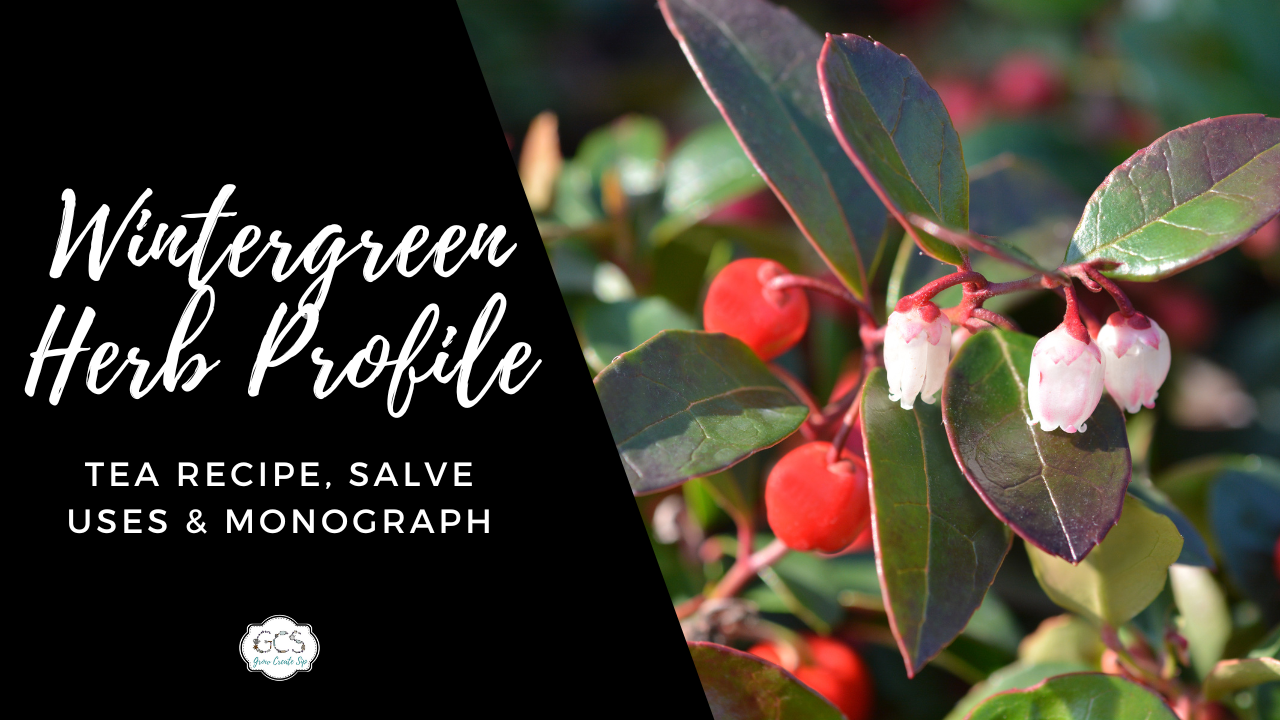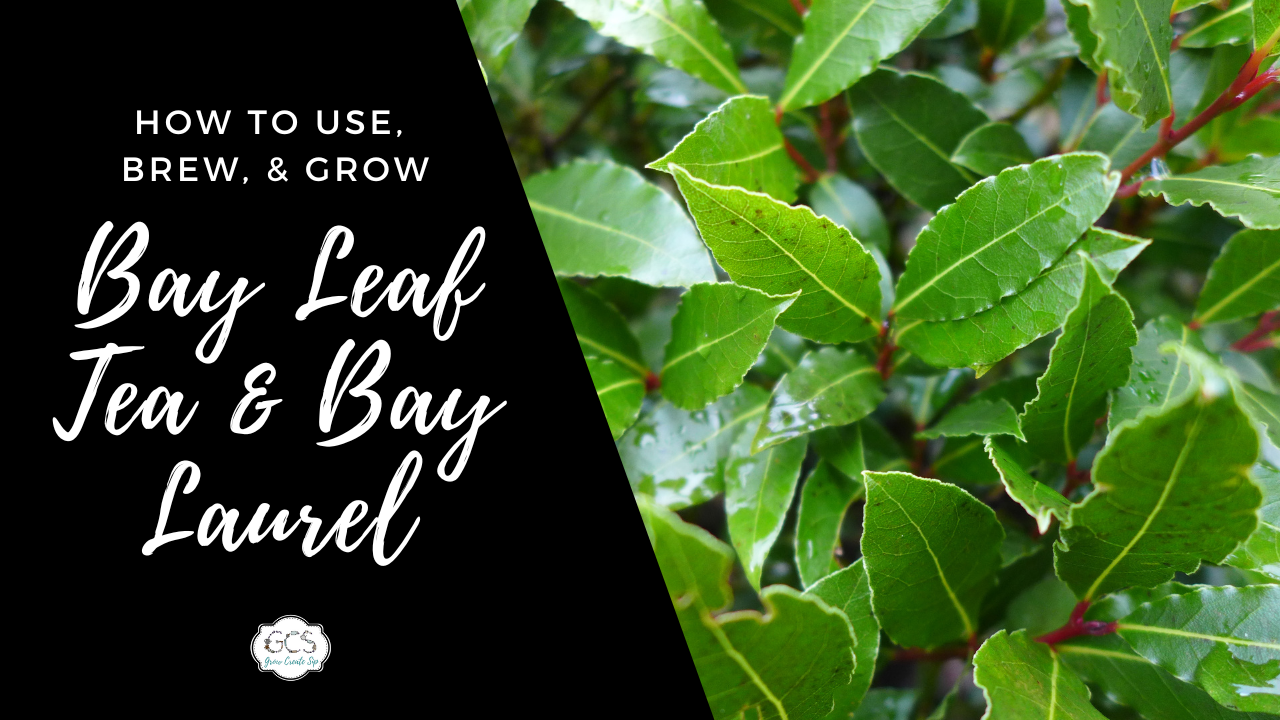6 Tips on How to Grow an Herbal Tea Garden
Jul 05, 2021
Herbs can be a great place for the beginner gardener to start. Many types of herbs are easy to grow, and these tips will have you soon growing herbs like a pro.
You read The Secret Garden as a little girl and imagined the vast walls of climbing plants surrounding that quiet, beautiful place. The place that shuts the world out, and there was nothing to worry about except for admiring the beauty of God's creation. That and maybe the excellent book that you brought with you.

Now, the garden provides you the same solace and peace, and perhaps you are ready to expand to growing fresh herbs for your own medicines. A place that will provide you with all the natural medicines you use to heal your family. A sense of security that the herbs you need are affordable and growing right at your fingertips. Herbs such as peppermint for digestion, headaches, and muscle cramps, oregano for colds and headaches, chamomile for anxiety, depression, and nerve pain, bachelor buttons for aching muscles and open wounds, and the tiny, yet tasty, elderberries for immune health to name just a few.
But where in the world do you start with planning your own herbal garden? How do you grow those herbs that you intend to turn into powerful medicines?
There are lots of things to consider!
Before we start:
This herbal information is just that, information. This blog post and I DO NOT INTEND to treat, cure, or diagnose any disease or illness. This is for informational, educational and entertainment purposes only. Please consult a physician before using herbs medicinally.
This post also contains affiliate links throughout. Translation: We get a little kick back for sharing certain products, at no additional cost to you, should you choose to purchase said items. And - thank you for supporting our farm and family! Read the full disclaimer here.
Today we are going to cover 6 of the most common questions that we get here about growing herbs and starting one's tea garden.
These questions were garnered from our considerable list of followers who are also wanting to start their own herbal tea garden but don't know where to start. Or maybe they are afraid to start in the wrong place or with the wrong herb.
I've been there too, and while I'm more of a shoot and aim later type of person, some handy tips along the way would have saved a lot of struggle and trial. I'm sharing those with you here today.

#1 What herbs will grow in your area?
When first deciding what you want or need to plant, it's best to see what will grow in your area. For most of us, it won't be warm enough to grow our own cinnamon tree for the bark. Or maybe you want to grow cleavers, but you don't have the wet, boggy fertile garden soil that it loves to live in. So it's essential to make sure that what you are wanting to grow is actually going to grow in the conditions that you have where you are at.
One way to find out if the plant is suitable for your climate is through a materia medica or an herbal monograph. These books and herbal information sheets will tell you all about the growing conditions required for a specific medicinal herb or plant.

Like the chickweed I mentioned above, you will know that it needs a cool, bog-like condition with fertile soil. This probably isn't something you would plant in Arizona, where it will be much too warm, and the soil is likely not to fit either.
Another way is to look up if a plant grows in your USDA zone is through the Grower's Exchange. They have a great little interactive website with plants by zone as well as finding out which zone you are in. This might vary as there are always micro-climates.
Other than using the USDA zone guide, asking neighbors who have lived in your area for a long time about what grows well is also helpful. I remember my grandfather telling me stories about them picking wild elderberries on the highway when he was younger. The older generation comes with a lot of wisdom for those of us who are learning.

#2 Your Level of Experience
Second to making sure that your plant of choice will actually grow in your location, is your level of experience. I'm often asked what herbs would I put in my garden? Which 3 would I pick? What are my top 10? The answer is, it depends.
When you are planting your herb garden, consider how much experience you have with planting. The 28-year-old me couldn't grow a tomato; my thumb was so black. The 38-year-old me has a bit more experience now after 10 years. My thumb still isn't a fabulous green, but it's not as black as it used to be. The good news is that all of us can spend our lives learning and improving.
With that said, I wouldn't recommend that a total newbie to gardening go out and plant herbs from seed or take cuttings from a plant. Those are a little more advanced and take a bit more effort than, say, buying a start at a local nursery or your local home improvement store.
Start with the route that will get you the quick win and then "snowball" that herb garden. There is no shame in buying a mint plant at Home Depot or Lowes. Or even an herb garden kit. We all have to start somewhere.
Don't set yourself up for failure because the learning curve is too steep. You will get discouraged and give up before you even get started. Here are some herbs for beginners and advanced to get you started. This is by no means a comprehensive list. Other people may have differing opinions on what is hard or easy to grow. Environment and personality will cause varying factors.
Herbs for Beginners vs. Advanced

#3 Consider Your Spaces
What is the best area to grow herbs for tea?
Some of us have many acres and can plant to our heart's content, but most of us are tied up for space. We have to make do with what we have to the best of our ability, so space is a precious commodity.
Are you in an apartment or a small duplex with nothing but your window sill to grow indoors, or maybe a little porch outside? Make use of your space with vertical gardening and pots.
Do you have a small city lot, maybe 1/4 acre? Raised beds, vertical gardening, and planting in pots might be the best use of your space.
What about an acre or more farm? You don't want to plant those medicinal and culinary herbs in the back forty. That would make a long hike every day, so you want to keep them right around the house or nearby.
Maybe your garden soil is full of clay and rock making for poor draining soil, so raised beds or pots with potting soil would work better than planting directly in the ground. Perhaps your good drainage is too good, and you have sand providing weak structure for your plants’ root system. You will need to work on how to keep the moisture in, and planting in one spot might do better than another.
Is your area shady, or does it get full sun? These herbs prefer shade or at least partial shade, and many do just as well when you plant your herbs indoors.
Once you have your location picked out and understand if your herbs planted will need to be in a pot, raised bed, or in the ground, and the type of garden soil it's going in, you will know better what plants to start with. That space will define how much you can grow and what you can grow.

#4 What Herbs Do You Already Use
Not only do herbs need to be matched to your level of gardening experience; it's also necessary to make sure that you are planting herbs that you are going to use.
What dried herbs are you using in your hand-blended teas? Do you regularly make allergy fighting tea blends, make personal care products using flower petals such as roses, or medicinal preparations with oregano? What herbal medicines do you continually buy? Those are the herbs you want to look at first. Are any of those herbs on your list of herbs that grow in your area? Are they easy to grow herbs or difficult?
Growing what you DON'T use just wastes time and money. That space could be better used when growing something that you will use and save you money on your herbal medicine budget.

#5 Sourcing the Best Seeds and Herbs
The best place to find seeds for starting herbs is another question that we get often. The answer is also, it depends. The reason for this is because some plants grow well from seeds, and some grow well from starts or cuttings.
The best resource in finding out the optimum way to propagate your plant of choice is to look again at the materia medica or herbal monographs. These books and papers will tell you all about the plant and the best way to propagate it and can be found in our Herbal Studio.
Once you know that, we recommend finding starts at your local nursery, or seeds at Botanical Interests. Those are two great places to get started on your herbal tea garden journey!

#6 Consider Maintenance
When planning your herbal tea garden or medicinal herb garden, make sure that you consider plant maintenance. Do you want a garden full of perennial herbs where they come back every year and don't have to keep planting? Or are you wanting annuals where you will need to replant? Are the herbs you are considering ones that will reseed themselves? Do you want them to freely reseed and propagate where you planted them every year?
If you are like my Farmer, he prefers his fruit trees and grapevines because they get planted once, and they are low maintenance for the most part. On the other hand, I love the perennials where they need to be harvested every year and come back the next year, but I also love replanting the herbs that don't just come back. Herbs truly are higher maintenance than fruit trees and grapevines.
When looking at how much maintenance you can handle, take a look at your time commitment and how much time each of the plants you're looking at will take.
As you can see, the question of "how to grow an herbal tea garden" is really a rather in-depth one. While it is detailed, it doesn't have to be complicated. Knowing your USDA growing zone, the plants that do well in it, and knowing the space you have will narrow down the plant list. While this might seem like a bummer, simplifying will help you achieve much better results. You will be happy with your herbal tea garden and will continue to learn more about your space and area.
If you are interested in learning how to blend your own medicinal herb teas, make sure you check out our free tea blending workshop.
I'd love to know what your tea garden space looks like? Let me know in the comment section below.

More Information on Herb Gardening
- 10 Herbs to Grow for Tea
- Best Medicinal Herbs to Grow in the Shade Garden
- Growing in Pots - Herbs & Perennials
- Dehydrating Flowers, Fruits & Botanicals (For DIY Herbal Tea)
- How to Dry Herbs without a Dehydrator
- Herb Harvesting Tools Must-Haves














